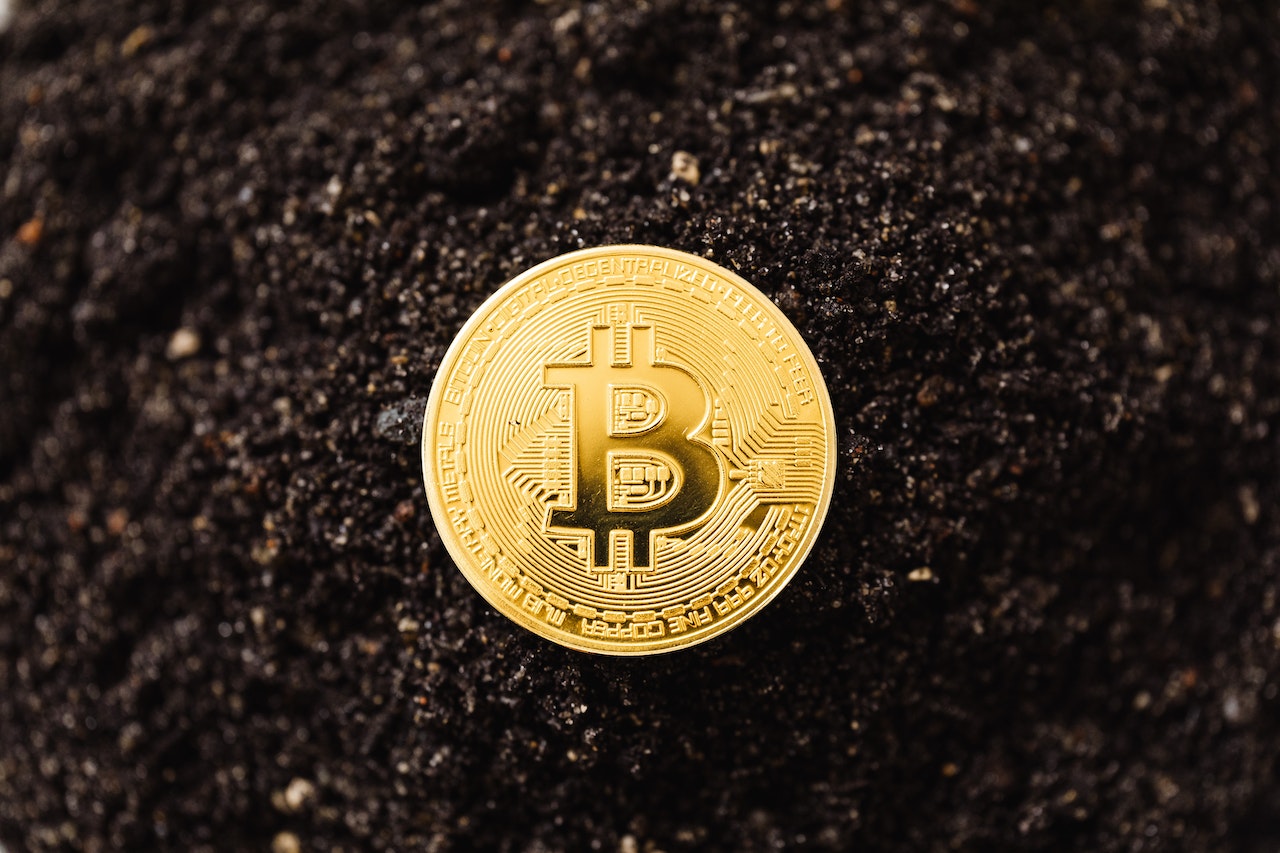
James Carter
How to Get Started with Bitcoin?: A Comprehensive Guide

Cryptocurrencies have revolutionized the financial landscape, and Bitcoin, as the pioneer of this digital revolution, continues to gain popularity worldwide. If you’re looking to enter the exciting world of Bitcoin, this comprehensive guide will walk you through the process step by step, ensuring you have a solid foundation to begin your Bitcoin journey.
Understanding the Basics of Bitcoin
What is Bitcoin?
Bitcoin is a decentralized digital currency that allows users to send and receive payments securely and anonymously. It operates on a peer-to-peer network without the need for intermediaries such as banks or governments. Bitcoin is based on blockchain technology, which ensures transparency and immutability of transactions.
How to Get Started with Bitcoin?
Bitcoin transactions are recorded on a public ledger called the blockchain. When a transaction occurs, it is verified by a network of computers (nodes) through a process called mining. Miners solve complex mathematical problems, adding new blocks to the blockchain and validating transactions. This decentralized consensus mechanism ensures the integrity and security of the Bitcoin network.
Key terms and concepts:
Wallets: Bitcoin wallets are software applications that allow users to store, send, and receive Bitcoin securely. They come in different types, including software wallets, hardware wallets, and online wallets.
Public and private keys: Public keys are used to receive Bitcoin, while private keys provide access to the funds and should be kept secure.
Transactions and confirmations: Bitcoin transactions involve transferring ownership of Bitcoin from one wallet to another. These transactions are confirmed and added to the blockchain through a process of validation.
Setting Up a Bitcoin Wallet
Types of wallets:
Software wallets: These wallets are installed on your computer or mobile device and offer convenience and accessibility.
Hardware wallets: Hardware wallets are physical devices that store your private keys offline, providing an extra layer of security.
Online wallets: Online wallets are web-based wallets that allow you to access your Bitcoin from anywhere with an internet connection. However, they may be more susceptible to hacking attempts.
Choosing a wallet:
When selecting a Bitcoin wallet, it’s crucial to consider factors such as security, user-friendliness, and accessibility. Research different wallet options, read reviews, and choose one that aligns with your preferences and needs.
Creating a wallet:
Generating and securing private keys: When creating a Bitcoin wallet, a unique set of public and private keys is generated. It’s essential to securely store your private keys to prevent unauthorized access.
Backing up the wallet: Create a backup of your wallet and store it in a safe place. This backup ensures that you can recover your funds if your device is lost, damaged, or stolen.

Obtaining Bitcoin
Bitcoin exchanges:
Researching and choosing an exchange: Look for reputable and regulated exchanges with a good track record in security and customer support. Consider factors such as exchange fees, trading volume, and supported countries.
Account setup and verification: Sign up for an account on the chosen exchange and complete the verification process, which usually involves providing identification documents and proof of address.
Depositing fiat currency: Deposit your local currency into your exchange account to start buying Bitcoin.
Placing buy orders: Once your account is funded, you can place buy orders for Bitcoin at the desired price. The purchased Bitcoin will be credited to your exchange account.
Peer-to-peer trading:
Platforms for P2P trading: Peer-to-peer trading platforms connect buyers and sellers directly, allowing you to trade Bitcoin without using an exchange. Popular platforms include LocalBitcoins and Paxful.
Finding trustworthy traders: When engaging in peer-to-peer trading, it’s important to find reliable and trustworthy traders. Look for users with a good reputation, positive feedback, and a history of successful trades. Review the trader’s profile, trade terms, and communication history to make an informed decision.
Negotiating and executing trades: Initiate contact with the chosen trader and negotiate the terms of the trade, including the Bitcoin quantity, price, and payment method. Follow the platform’s guidelines for secure trading and ensure that both parties agree on the terms before executing the trade.
Mining Bitcoin:
Introduction to mining: Bitcoin mining involves using specialized hardware to solve complex mathematical problems, validating transactions, and adding them to the blockchain. Miners are rewarded with newly minted Bitcoins for their computational efforts.
Mining hardware and software: To mine Bitcoin, you need dedicated mining hardware, such as ASIC (Application-Specific Integrated Circuit) miners, which are designed specifically for Bitcoin mining. Additionally, mining software is required to connect your hardware to the mining pool or network.
Joining a mining pool: Due to the high level of competition in Bitcoin mining, joining a mining pool is recommended. Mining pools allow miners to combine their computational power and increase the chances of earning rewards. Research and select a reputable mining pool that offers competitive fees and a stable infrastructure.
Security Best Practices
Securing your Bitcoin holdings:
Two-factor authentication (2FA): Enable 2FA on your wallet and exchange accounts to add an extra layer of security. 2FA requires a secondary verification method, such as a code from a mobile app or a text message, in addition to your password.
Strong passwords and passphrase: Use strong, unique passwords for your wallets and accounts. Consider using a password manager to generate and store complex passwords securely. Additionally, you can use a passphrase, which is a longer and more secure form of a password.
Offline storage (cold wallets): Consider storing a significant portion of your Bitcoin holdings in an offline or hardware wallet. Cold wallets are not connected to the internet, reducing the risk of online threats.
Recognizing and avoiding scams:
Phishing attempts: Be cautious of phishing attempts where malicious actors try to trick you into revealing your private keys or login credentials. Double-check URLs, avoid clicking on suspicious links, and be skeptical of unsolicited emails or messages requesting personal information.
Ponzi schemes and pyramid schemes: Be wary of investment opportunities promising unrealistic returns or schemes that rely on recruiting new members. Research and verify the legitimacy of any investment before committing your funds.
Fake exchanges and wallets: Only use trusted and well-established exchanges and wallets. Beware of fake or phishing websites that mimic legitimate platforms. Verify the website’s security certificate and check for user reviews or recommendations.
Keeping software and devices up to date:
Regular software updates: Keep your wallet software, operating system, and antivirus software up to date. Software updates often include security patches that protect against known vulnerabilities.
Antivirus and firewall protection: Install reputable antivirus software and enable a firewall to protect your devices from malware and unauthorized access.
Avoiding suspicious websites and downloads: Be cautious when visiting websites or downloading files related to Bitcoin. Stick to reputable sources and avoid clicking on links or downloading files from untrusted or suspicious sources.
Learning and Staying Informed
Bitcoin communities and forums:
Engage with Bitcoin communities and forums to learn from experienced users, ask questions, and stay updated on the latest trends and developments. Popular communities include Reddit’s r/Bitcoin and Bitcointalk.org.
Educational resources:
Books and e-books: There are several informative books and e-books available that cover various aspects of Bitcoin. Some recommended titles include “Mastering Bitcoin” by Andreas M. Antonopoulos and “The Bitcoin Standard” by Saifedean Ammous.
Online courses and tutorials: Numerous online platforms offer courses and tutorials on Bitcoin and cryptocurrency. Websites like Coursera, Udemy, and Khan Academy provide comprehensive courses taught by industry experts.
Podcasts and video channels: Podcasts such as “The What Bitcoin Did Podcast” and video channels like “Bitcoin for Beginners” on YouTube offer valuable insights and discussions on Bitcoin-related topics.
Staying up to date with news and developments:
News websites and blogs: Follow reputable news websites and blogs dedicated to cryptocurrencies, such as Coinposters, CoinDesk, Cointelegraph, and Bitcoin Magazine. These platforms provide the latest news, market updates, and insights into the Bitcoin ecosystem.
Social media accounts to follow: Twitter also is a popular platform for staying updated on Bitcoin news. Follow influential figures, industry experts, and reputable organizations to get real-time updates and engage in discussions.
Attending conferences and meetups: Consider attending Bitcoin conferences and meetups in your area. These events provide opportunities to network with industry professionals, learn from expert speakers, and stay informed about the latest developments in the Bitcoin community.

Legal and Tax Considerations
Regulatory landscape:
Understand the regulatory landscape of Bitcoin in your country or region. Bitcoin regulations vary globally, and it’s important to be aware of any legal requirements, licensing obligations, or restrictions on buying, selling, or using Bitcoin.
Tax obligations related to Bitcoin:
Consult with legal and tax professionals to understand the tax implications of owning and transacting with Bitcoin. Tax regulations regarding cryptocurrencies differ from country to country, and it’s essential to comply with tax reporting and payment requirements.
Consulting with legal and tax professionals:
Seek advice from legal and tax professionals who specialize in cryptocurrencies. They can provide personalized guidance based on your specific circumstances, ensuring compliance with relevant laws and regulations.
Summary
In conclusion, getting started with Bitcoin requires a solid understanding of the basics, setting up a secure wallet, obtaining Bitcoin through exchanges or peer-to-peer trading, and implementing robust security measures. Continual learning and staying informed about the latest developments in the Bitcoin ecosystem are crucial for making informed decisions. Additionally, it’s important to be aware of legal and tax considerations to ensure compliance with relevant regulations. By following these steps and exercising caution, you can embark on your Bitcoin journey with confidence and navigate the exciting world of cryptocurrencies effectively.
Latest
Bitcoin
09 May 2024
Bitcoin
19 Apr 2024
Bitcoin
16 Jan 2024
Bitcoin
31 Aug 2023
Bitcoin
24 Jun 2023
Bitcoin
24 Jun 2023













